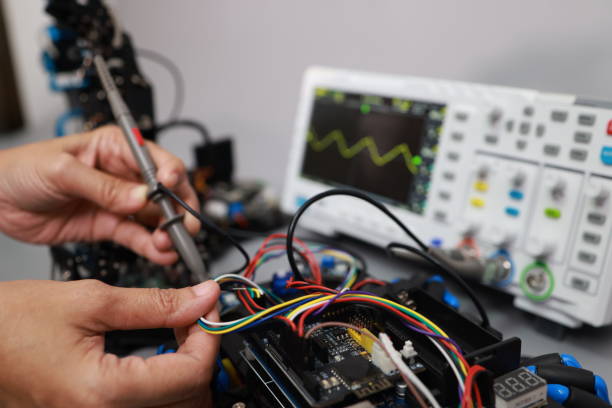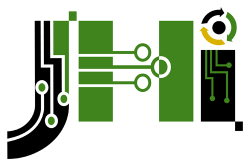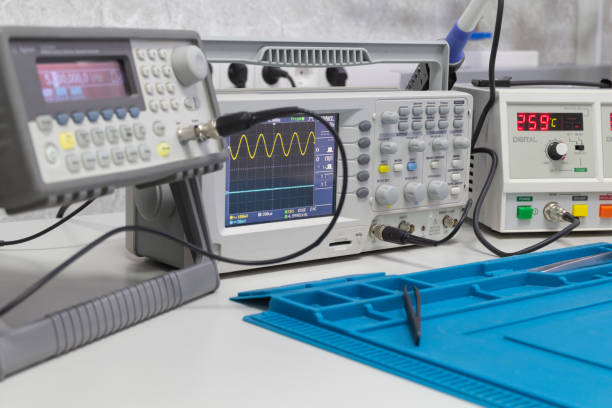
-
Multimeter
A digital multimeter (DMM) is one of the most essential tools for measuring voltage, current, and resistance. It helps detect circuit faults and verify electrical values, making it a staple in electronics testing.
-
Oscilloscope
An oscilloscope allows users to visualize electrical signals in waveforms, helping analyze signal integrity, frequency, and voltage variations. This tool is essential for troubleshooting complex circuits and detecting irregularities in electronic systems.
-
Signal Generator
A signal generator produces electrical waveforms used for testing and debugging circuits. Common types include function generators, RF signal generators, and arbitrary waveform generators, each serving different testing applications.
-
Spectrum Analyzer
A spectrum analyzer measures signal frequency and amplitude, identifying noise, interference, and harmonics in electronic circuits. It’s widely used in telecommunications, RF engineering, and wireless communication testing.
-
Power Supply
A bench power supply provides a stable and adjustable voltage/current source to test electronic circuits. It ensures components function correctly under different power conditions and is vital for circuit development.
-
Logic Analyzer
A logic analyzer captures and displays digital signals, allowing engineers to debug and analyze complex digital circuits. It is essential in microcontroller and digital system design.
-
LCR Meter
An LCR meter measures inductance (L), capacitance (C), and resistance (R). It’s a crucial tool for evaluating the characteristics of passive electronic components in circuit designs.
-
Semiconductor Tester
A semiconductor tester evaluates transistors, diodes, and other semiconductor components, ensuring they function as expected. It helps identify faulty components in circuits.
-
Network Analyzer
A network analyzer measures the response of electrical networks, particularly in RF and microwave systems. It helps engineers optimize performance in wireless communication applications.
-
Electromagnetic Field (EMF) Tester
An EMF tester detects electromagnetic interference (EMI) and ensures compliance with safety regulations. It is commonly used in industrial and consumer electronics testing.
Choosing the Right Test Equipment
Selecting the appropriate test equipment depends on the type of electronics work you are doing. For basic troubleshooting, a multimeter and oscilloscope may be sufficient, while RF engineers may require spectrum and network analyzers.
Electronic test equipment plays a vital role in ensuring the functionality, safety, and reliability of electronic devices. Whether you’re designing new circuits, repairing faulty devices, or working in a research lab, investing in high-quality testing tools is essential for accuracy and efficiency.
Looking for Essential Test Equipment Used in Electronics? Explore the latest test equipment to enhance your electronics projects and professional work!


 Power Supply
Power Supply